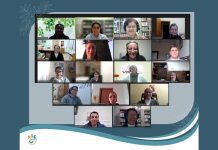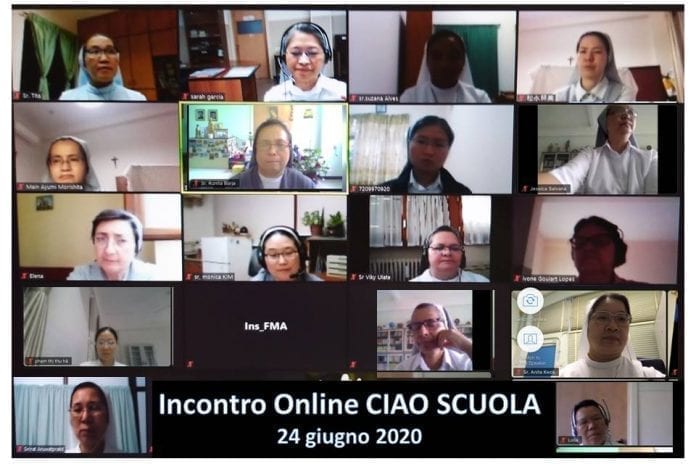Rome (Italy) On June 24, 2020, the members of the Interprovincial East Asia Conference (CIAO) School met online to discuss the topic: “Guarantee the right to education in the time of the pandemic”.
The meeting, organized by the Youth Ministry Sector, was coordinated by Sister Sarah Garcia. The Daughters of Mary Help of Christians were present along with the Referents from the CIAO Schools of Cambodia, Myanmar, China, Hong Kong, Macau, Taiwan, the Philippines, Japan, South Korea, Thailand, Timor-Leste, and Vietnam.
Sister Runita Borja, Councilor for Youth Ministry of the FMA Institute, in her welcoming words to the participants, underlined the reason for the meeting: “One of the biggest challenges of the current situation is ensuring education for all. This meeting is a significant space to help each other to find concrete ways to guarantee education for everyone, especially children, adolescents, and young people in situations of hardship and exclusion”.
The Province Referents presented the situation of the school in their respective contexts, the difficulties encountered, and the responses put in place to deal with the situation due to the pandemic, and to give continuity to the education of children and young students.
Educational institutions of the FMA in East Asia, as in other parts of the world, are affected by the effects of the Covid-19 pandemic. The Provinces have activated a process of researching alternative ways to guarantee educational continuity, quality, and sustainability of the mission, to continue promoting the right to education, in particular for students excluded due to lack of access to online learning platforms or at risk of dropping out of school due to the unemployment of the parents. Another issue is the protection of children, adolescents, and young people against domestic violence and online threats. Other aspects considered were the school curriculum, the formation of teachers and school staff, financial sustainability, and school infrastructure.
Sr. Runita Borja, referring to the report of the Organization for Economic Cooperation and Development (OECD) entitled A framework to accompany an educational response to the pandemic of Covid-19 of 2020, offered some indications to keep in mind in the process of developing and implementing educational responses:
- establish a task force (commission-guide) with responsibility for developing and implementing the educational response to the pandemic;
- develop a continuity plan for the works;
- develop communication with each student and encourage learning;
- identify an educational strategy that can be implemented, making sure that no one falls behind in learning;
- ensure support for the most vulnerable students and families;
- Create collaboration between teachers and parents to support learning in the new style of instruction.
The Covid-19 Pandemic brings educational challenges with it and, as Pope Francis indicated in the Message for the Launch of the Global Educational Pact, it is necessary “to search together for solutions, implement processes of transformation without fear, and look to the future with hope”. The Pope thus invites everyone, “to be protagonists of this covenant by making ourselves responsible for it with a personal and community commitment to cultivate together the dream of a humanism in solidarity, responsive to the expectations of humanity and of God’s plan”.




















